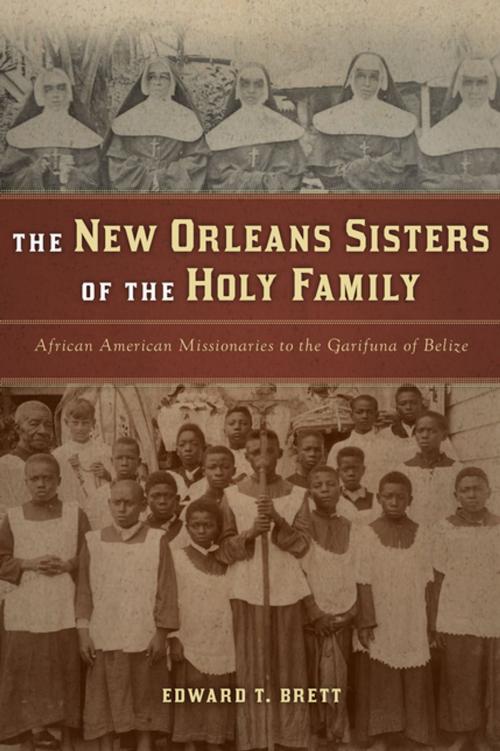New Orleans Sisters of the Holy Family, The
African American Missionaries to the Garifuna of Belize
Nonfiction, History, Americas, Central America, Social & Cultural Studies, Social Science, Cultural Studies, African-American Studies, Religion & Spirituality, Christianity, Denominations, Catholic, Catholicism| Author: | Edward T. Brett | ISBN: | 9780268075880 |
| Publisher: | University of Notre Dame Press | Publication: | April 3, 2012 |
| Imprint: | University of Notre Dame Press | Language: | English |
| Author: | Edward T. Brett |
| ISBN: | 9780268075880 |
| Publisher: | University of Notre Dame Press |
| Publication: | April 3, 2012 |
| Imprint: | University of Notre Dame Press |
| Language: | English |
The Sisters of the Holy Family, founded in New Orleans in 1842, were the first African American Catholics to serve as missionaries. This story of their little-known missionary efforts in Belize from 1898 to 2008 builds upon their already distinguished work, through the Archdiocese of New Orleans, of teaching slaves and free people of color, caring for orphans and the elderly, and tending to the poor and needy. Utilizing previously unpublished archival documents along with extensive personal correspondence and interviews, Edward T. Brett has produced a fascinating account of the 110-year mission of the Sisters of the Holy Family to the Garifuna people of Belize. Brett discusses the foundation and growth of the struggling order in New Orleans up to the sisters' decision in 1898 to accept a teaching commitment in the Stann Creek District of what was then British Honduras. The early history of the British Honduras mission concentrates especially on Mother Austin Jones, the superior responsible for expanding the order's work into the mission field. In examining the Belizean mission from the eve of the Second Vatican Council through the post–Vatican II years, Brett sensitively chronicles the sisters' efforts to conform to the spirit of the council and describes the creative innovations that the Holy Family community introduced into the Belizean educational system. In the final chapter he looks at the congregation's efforts to sustain its missionary work in the face of the shortage of new religious vocations. Brett’s study is more than just a chronicle of the Holy Family Sisters' accomplishments in Belize. He treats the issues of racism and gender discrimination that the African American congregation encountered both within the church and in society, demonstrating how the sisters survived and even thrived by learning how to skillfully negotiate with the white, dominant power structure.
The Sisters of the Holy Family, founded in New Orleans in 1842, were the first African American Catholics to serve as missionaries. This story of their little-known missionary efforts in Belize from 1898 to 2008 builds upon their already distinguished work, through the Archdiocese of New Orleans, of teaching slaves and free people of color, caring for orphans and the elderly, and tending to the poor and needy. Utilizing previously unpublished archival documents along with extensive personal correspondence and interviews, Edward T. Brett has produced a fascinating account of the 110-year mission of the Sisters of the Holy Family to the Garifuna people of Belize. Brett discusses the foundation and growth of the struggling order in New Orleans up to the sisters' decision in 1898 to accept a teaching commitment in the Stann Creek District of what was then British Honduras. The early history of the British Honduras mission concentrates especially on Mother Austin Jones, the superior responsible for expanding the order's work into the mission field. In examining the Belizean mission from the eve of the Second Vatican Council through the post–Vatican II years, Brett sensitively chronicles the sisters' efforts to conform to the spirit of the council and describes the creative innovations that the Holy Family community introduced into the Belizean educational system. In the final chapter he looks at the congregation's efforts to sustain its missionary work in the face of the shortage of new religious vocations. Brett’s study is more than just a chronicle of the Holy Family Sisters' accomplishments in Belize. He treats the issues of racism and gender discrimination that the African American congregation encountered both within the church and in society, demonstrating how the sisters survived and even thrived by learning how to skillfully negotiate with the white, dominant power structure.















